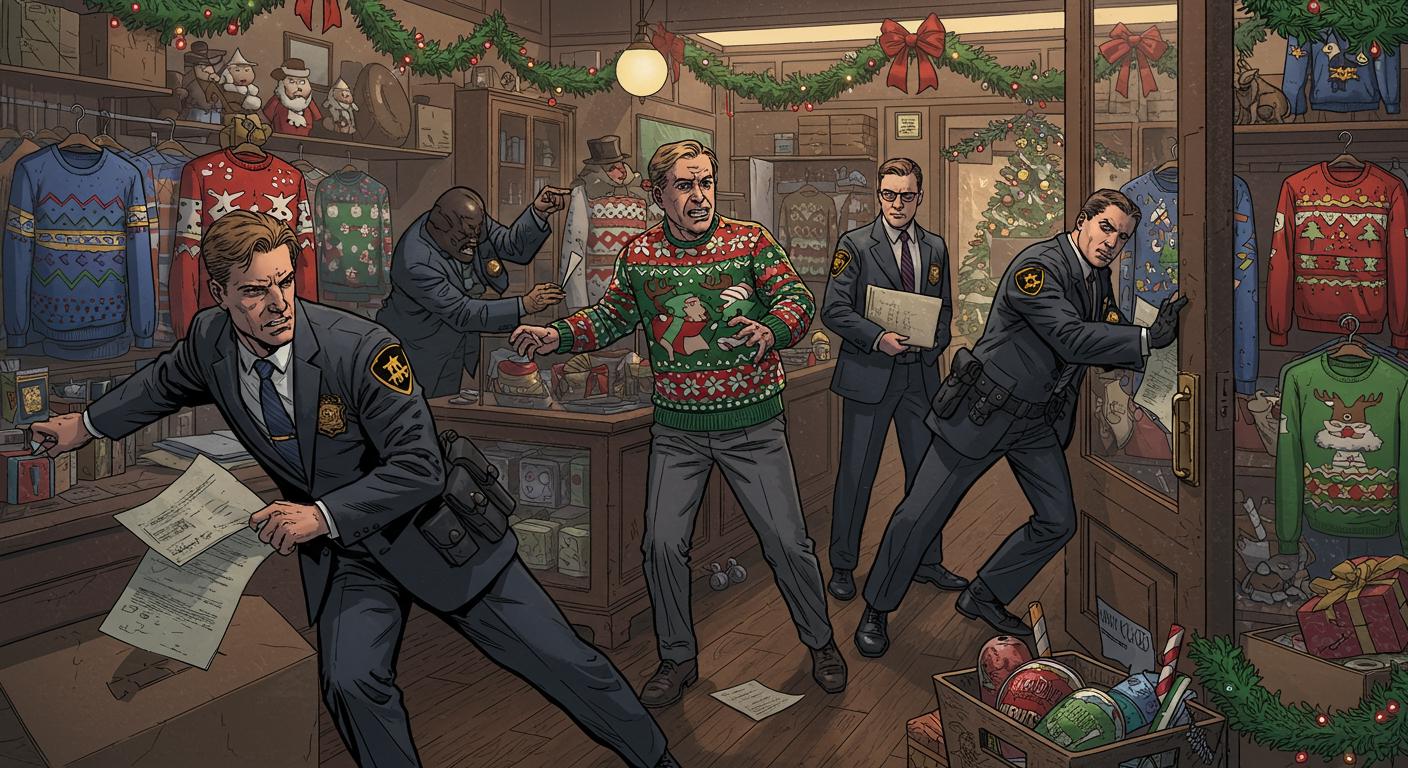It turns out, the most questionable thing about Ugly Christmas Sweater Inc. may not be the sweaters’ designs, but the business practices that funded their success—at least according to a recently unwrapped investigation.
From Dorm Room Dream to Uncheerful Accusations
Every so often, a rags-to-riches story takes a strange detour: Firas “Fred” Hajjar, once an entrepreneurial student selling T-shirts from his Michigan State dorm, ultimately grew his novelty holiday garment business into an empire. But as reported by the Detroit Free Press, federal officials now allege that Hajjar’s pandemic strategy involved less-than-celebratory creativity.
Described in the Free Press, Hajjar secured over $500,000 in Paycheck Protection Program (PPP) loans through Ugly Christmas Sweater Inc., Your Fantasy Warehouse, Inc., and Costume Agent, Inc. The Justice Department asserts that Hajjar left out a key detail in his loan applications: his prior felony tax evasion conviction. Overlooking a criminal history that would have disqualified him for aid, he reportedly moved to the next step—listing his wife as either director or owner of these businesses on federal paperwork, despite being the true operator himself.
The strategy is summed up in a 2022 whistleblower lawsuit highlighted by the Free Press, stating, “He used his wife … to perpetuate the PPP fraud.” The image of a novelty sweater entrepreneur embroiled in a federal fraud allegation seems almost tailor-made for a particularly bizarre holiday party anecdote, doesn’t it?
No Guilt, Just a Million-Dollar Settlement
According to court records cited by the outlet, Hajjar agreed to a civil settlement: paying back the $504,000 in loans plus a matching sum as restitution—just north of $1 million in all. The agreement comes with the standard non-admission of guilt, a legal way of stuffing the “not guilty” stocking while forking over the actual money. Officials confirmed to the Free Press that the forgiven PPP loans were ultimately absorbed by U.S. taxpayers but will now, at least partially, find their way back to the Treasury.
When the Free Press reached out for comment, Hajjar declined—leaving us to imagine which variety of holiday sweater he might have been wearing at the time.
Faux Pas Beyond the Festive
The outlet also notes Hajjar wasn’t the only Michigan entrepreneur to get wrapped up in allegations of PPP fraud. In the same settlement sweep, Bradley McKouen of Delta Staffing LLC similarly agreed to pay restitution after being accused of hiding a previous felony tax conviction to secure $462,000 in forgiven loans. Earlier in the report, it’s mentioned that McKouen was previously sentenced to 18 months in prison related to his conviction, followed by supervised release and another hefty restitution order.
Statements from U.S. Attorney Jerome F. Gorgon, Jr., and additional Justice Department commentary relayed in the Free Press, stress that these cases are just the tip of the tinsel-tangled iceberg. Michigan alone saw $3.4 billion in PPP loans forgiven, with “scores” of applicants now under scrutiny as investigations continue. Anyone with knowledge of fraud, officials urge, should get in touch with the Department of Justice’s National Center for Disaster Fraud.
Sweaters, Subterfuge, and Seasonally Poor Decisions
So here we are: a business designed around the idea of looking ridiculous for a laugh reveals a far less amusing side. There’s a strange symmetry in how the layers of deception—in paperwork as much as in polyester—stack up in this story.
One wonders what the company’s next holiday party will look like. Will there be contests for “Ugliest Accounting Practice”? Might a new line of “Forgiven but Not Forgotten” sweaters hit the shelves? Or will Hajjar’s tale simply be added to the archive of uniquely American pandemic-era oddities—where success, failure, ambition, and a dash of outright audacity all blur together?
Perhaps the real question, as more of these cases unravel, is just how many ugly truths still linger in the national closet, only partly obscured by seasonal cheer.







